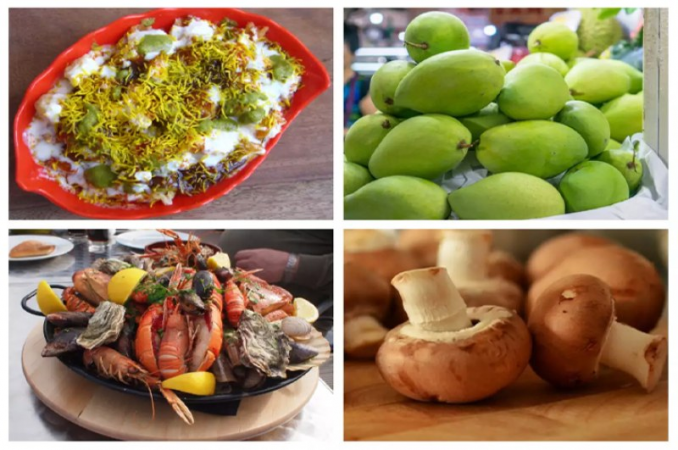
The monsoon season brings relief from the scorching summer heat, but along with the raindrops and cool breezes, it also brings a host of health concerns. One of the significant challenges during this time is maintaining food hygiene, as the increased humidity and moisture create favorable conditions for bacteria and fungi to thrive. To stay healthy and avoid falling ill during the monsoon, it's crucial to be mindful of what you eat. Here’s a detailed guide on foods to avoid and alternatives to embrace during this rainy season.
The moisture-laden atmosphere during monsoon becomes an ideal breeding ground for pathogens. Foods that are prone to contamination or spoilage should be particularly avoided during this time to prevent foodborne illnesses. Here are some categories of foods that are best avoided:
Leafy greens such as spinach, cabbage, and lettuce are often contaminated by water during the monsoon. These vegetables can harbor bacteria and parasites, leading to gastrointestinal infections if consumed raw or improperly washed.
While tempting, street food during the monsoon can be risky due to compromised hygiene standards. Exposed to the elements and often prepared in unclean conditions, street food items like chaats, pakoras, and samosas can easily cause digestive issues and food poisoning.
Consuming raw salads can be hazardous during the monsoon unless they are thoroughly washed with clean, purified water. The risk of contamination from waterborne pathogens is high, making raw vegetables a potential source of illness.
Fried snacks such as bhajiyas, vadas, and fries are popular during the rainy season but should be consumed sparingly. The increased humidity affects digestion, and heavy oils used for frying can further burden the digestive system.
Fresh seafood is susceptible to rapid bacterial growth in humid conditions. It is advisable to avoid consuming seafood during the monsoon to reduce the risk of food poisoning and infections.
Milk, cheese, and yogurt are prone to spoilage in high humidity. It's essential to ensure these dairy products are stored properly and consumed fresh to prevent gastrointestinal issues.
Pre-cut or sliced fruits sold in open markets or street stalls may not be hygienically prepared. Opting for whole fruits that can be washed and peeled at home is a safer choice during the monsoon.
While certain foods pose risks during the monsoon, there are plenty of safe and nutritious alternatives to enjoy. Here are some healthier options:
Opt for well-cooked vegetables as cooking kills bacteria and parasites that may be present. Ensure vegetables are thoroughly washed before cooking to remove any dirt or contaminants.
Soups made with fresh vegetables and herbs not only provide warmth but also boost immunity. They are safer than raw salads and easier on the digestive system during the monsoon.
Instead of oily fried foods, choose dry snacks such as roasted nuts, air-popped popcorn, or whole grain crackers. These snacks are lighter on the stomach and lower in fat.
Herbal teas infused with ginger, tulsi (holy basil), or lemongrass have antibacterial properties that can help ward off infections. They also aid digestion and provide a comforting drink during rainy days.
Home-cooked meals using fresh ingredients are the best choice for maintaining good health during the monsoon. Cooking at home allows you to control the hygiene standards and ensures food safety.
In addition to being cautious about food choices, practicing good hygiene habits is essential to prevent illnesses during the monsoon season. Here are some practical tips:
Regular hand washing with soap and water before eating or handling food reduces the risk of transferring germs to your mouth.
Ensure that the water you drink is purified and safe. Boiling water or using a water purifier can help eliminate waterborne diseases caused by contaminated water.
Always use fresh and properly washed ingredients while cooking. Avoid using leftover food or ingredients that have been stored for a long time, as they may have lost their freshness and nutritional value.
Proper storage of perishable foods such as fruits, vegetables, and dairy products is crucial during the monsoon. Use airtight containers and keep them refrigerated to prevent spoilage. By being mindful of what you eat and following these food precautions during the monsoon, you can significantly reduce the risk of falling ill due to contaminated or unsafe foods. Enjoy the rainy season to the fullest by making smart food choices and prioritizing your health and well-being.
Komal Pandey Stuns in Bold Black Cut-Out Dress for Her Birthday Celebration
Here in Bareilly of Uttar Pradesh, you get samosa for only 2 rupees, know why
Black Ice: Why is black ice on the road considered more dangerous than normal ice? Know the reason